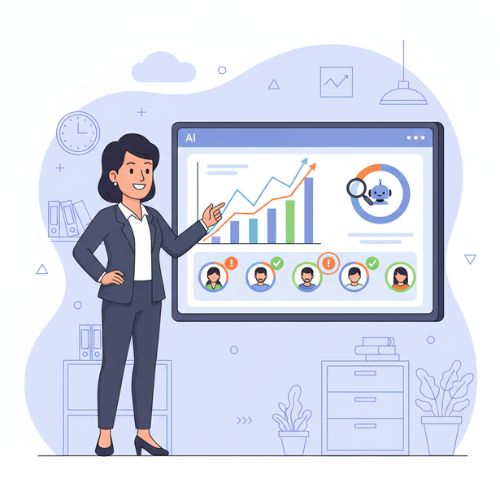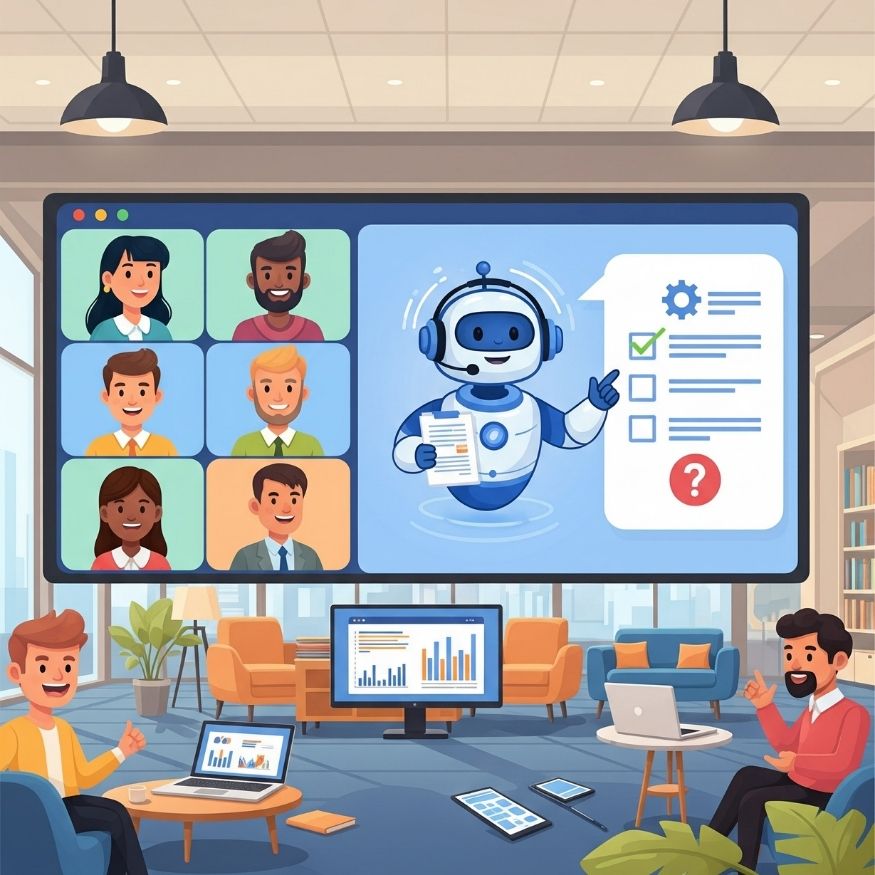How to Determine If You Need A Better Way to Gather and Analyze HR Questions
Human Resources (HR) departments are an integral part of any organization. They are responsible for managing employee relations, addressing employee concerns, and offering support when necessary. However, with the growth of remote work and the ever-changing needs of employees, HR departments are facing increased workloads and a greater volume of HR-related questions. In this scenario, it becomes imperative for HR departments to have an efficient and effective method for gathering and analyzing these questions.
In this guide, we'll examine the key indicators that suggest your HR department needs a more streamlined approach to gathering and analyzing HR questions. By the end, you'll have a clearer understanding of what to look out for and the steps you can take to improve your HR process. This can help ensure that your HR department is equipped to handle the demands of your organization and provide the support that employees need in a timely and effective manner.
Increased Volume of Employee HR Questions
One of the most obvious signs that you need a better way to gather and analyze employee HR questions is if you see an increase in the volume of questions received. This could be due to an increase (or decrease) in the number of employees or a change in the nature of employee HR questions such as questions regarding layoffs. If your HR department is struggling to keep up with the volume of questions, it may be time to consider a solution that is more equipped to handle your organization’s growth.
Inefficient and Time-Consuming Process
Another sign that your HR department needs a better way to gather and analyze employee HR questions is if your current process is inefficient and time-consuming. This could mean that your department is spending too much time at the end of each month sifting through emails and messages trying to locate questions and responses. In some cases, the HR department may be using manual processes to keep track, such as a spreadsheet, which can be prone to errors and slow down the analysis.
Long Response Times
If employees are waiting an excessive amount of time to receive answers to their HR questions, it can lead to frustration and decreased employee satisfaction. By improving the efficiency of your HR question gathering and analysis process, you can provide quicker responses to employee questions and improve employee satisfaction.
Overwhelmed by HR tickets, emails, and chats? Let Botable handle the load
Lack of Consistency in Responses
Inconsistent responses to employee HR questions can also be a sign that your HR department needs a better way to gather and analyze questions. This could mean that HR employees are providing inconsistent answers to the same question, or that different HR employees are providing different answers to similar questions. A lack of consistency in responses can lead to confusion and mistrust among employees. By having a consistent and efficient method of gathering and analyzing HR questions, you can ensure that all employees receive consistent answers to their questions.
How to Take Action
If you're experiencing any of the above signs, it's important to take action. Here are some steps you can take to improve your HR process:
- Implement a Standardized Process: Implementing a standardized process can help ensure consistency in responses to employee HR questions. This could involve creating a knowledge base of frequently asked questions, or providing HR employees with training on how to respond to questions.
- Improve Communication: Improving communication between HR departments and employees can also help reduce the volume of employee HR questions. This could involve setting up regular check-ins with employees or creating a communication channel for employees to ask questions.
- Gather Feedback: It's important to gather feedback from all employees on the current HR process. This feedback can help you identify areas for improvement and ensure that your HR process is meeting the needs of all employees.
Another solution for improving your HR gathering and analysis process is the use of HR bots. HR bots, or chatbots, are artificial intelligence-powered systems that can automate many of the manual tasks involved in HR analysis. By using natural language processing (NLP) and machine learning (ML), HR bots can provide quick and accurate responses to employee HR questions.
HR bots can provide numerous benefits to your HR process, including:
- 24/7 Availability: HR bots can be available 24/7, providing support to employees whenever they need it. This can help improve employee satisfaction and reduce the workload on HR departments.
- Consistency: HR bots can provide consistent responses to employee HR questions, ensuring that employees receive the same information regardless of when they ask.
- Speed: HR bots can provide quick responses to employee HR questions, which can help improve the overall efficiency of your HR analysis process.
- Scalability: HR bots can handle a large volume of employee HR questions, making it easier for HR departments to keep up with the needs of their employees.
- Improved Data Collection: HR bots can collect and store data on employee HR questions, providing valuable insights into the needs and concerns of employees.
It's important to note that HR bots are not meant to replace HR departments, but to enhance their capabilities. By integrating HR bots into your HR gathering and analysis process, you can provide better support to your employees while also improving the efficiency of your processes.
Closing Thoughts
It's important to remember that employee HR questions are a reflection of the overall health of your organization. By addressing these questions, you can gain valuable insights into the needs and concerns of your employees. Having a better way to gather and analyze employee HR questions can not only improve your process, but also provide valuable insights into your organization and help you make informed decisions that can benefit both your employees and your organization as a whole.
Answers your employees need, right when they need them
Meet Botable — the AI chatbot that handles everything from simple FAQs to complex, multi-step questions, so your team can focus on what matters. Built for HR, QA, and beyond.
Continue reading
Ready to see what Botable can do for you?
Book your demo now to see how Botable can transform your workplace.
Identify your unique challenges
Flexible pricing options
Easy integrations
Step-by-step implementation plan
Customize Botable for your workflow
Book a demo
.webp)



.jpg)





